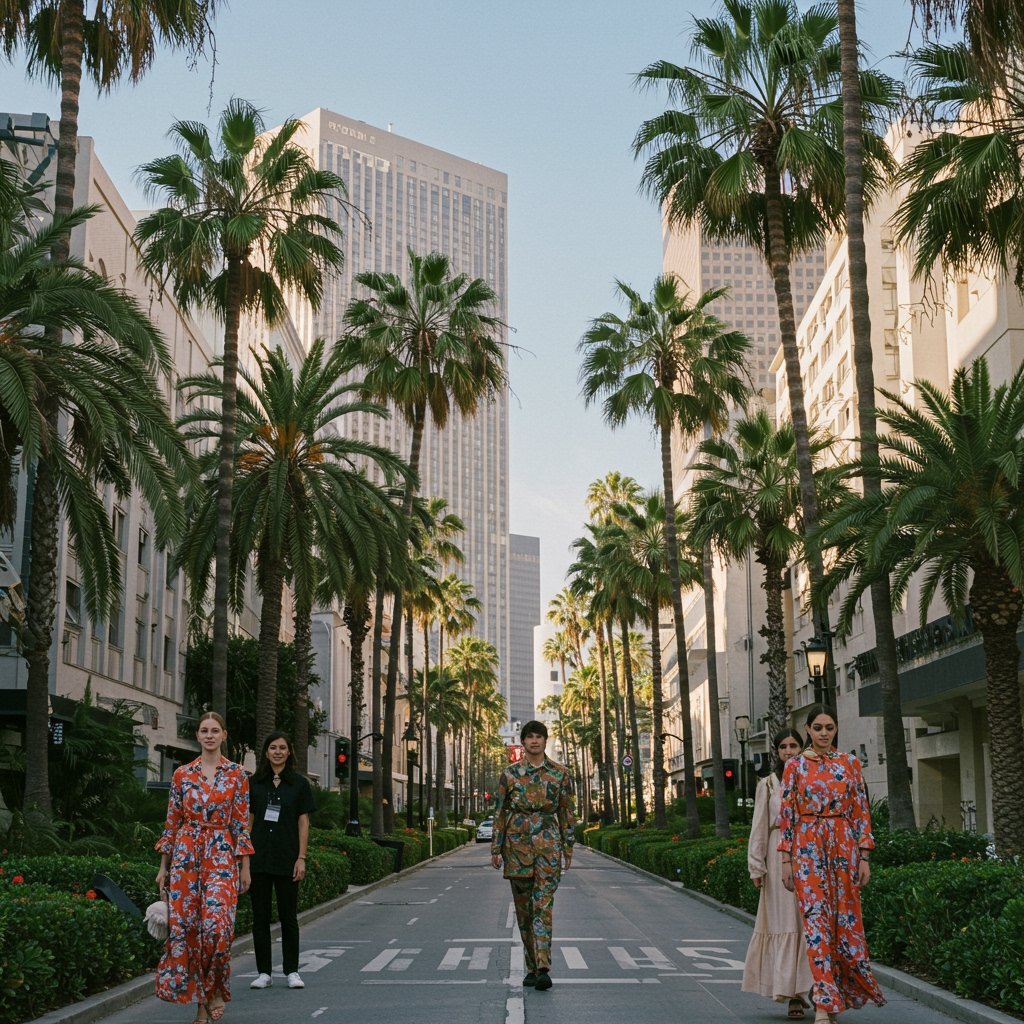Global Fashion Industry Convenes in Los Angeles
LOS ANGELES, CA – The global fashion industry converged in Los Angeles on June 5-6, 2025, for the highly anticipated annual FutureWear Summit. Hosted at the city’s bustling downtown convention center, the event brought together an influential cohort of designers, brand executives, supply chain experts, innovators, and policymakers. The central aim of the summit was to critically assess the industry’s environmental and social footprint and, more importantly, to catalyze concrete action towards a more sustainable and ethical future.
The two-day intensive agenda was structured around pivotal themes deemed critical for transforming the fashion landscape. Primary discussions revolved around accelerating the adoption of circularity, enhancing supply chain ethics, and championing the development and integration of next-generation eco-materials. These pillars represent the core challenges and opportunities facing an industry often criticized for its linear model, opaque supply chains, and reliance on resource-intensive production methods.
Addressing the Imperative for Change
The fashion industry stands at a crucial juncture. Mounting environmental concerns, including carbon emissions, water usage, waste generation, and pollution from manufacturing processes and materials, necessitate urgent systemic change. Simultaneously, increased scrutiny on labor practices within complex global supply chains is driving demands for greater transparency and accountability. Consumers, increasingly aware of the social and environmental impacts of their purchasing decisions, are also exerting pressure on brands to adopt more responsible practices.
The FutureWear Summit provided a vital platform for stakeholders across the value chain to engage in frank dialogue, share best practices, and forge collaborative pathways forward. Sessions explored innovative business models that prioritize longevity, repairability, and recycling, moving away from the traditional ‘take-make-dispose’ approach. Expert panels delved into the complexities of ensuring fair wages, safe working conditions, and human rights protections throughout intricate global production networks.
Leading Voices and Cutting-Edge Innovation
The summit attracted a roster of prominent figures shaping the industry’s sustainable evolution. Among the notable attendees was renowned designer Stella McCartney, a long-time advocate and pioneer in sustainable luxury fashion. Her presence underscored the growing integration of sustainability principles into high fashion and the potential for innovation to drive both aesthetic and ethical progress. Representatives from the Council of Fashion Designers of America’s (CFDA) sustainability initiative were also actively involved, highlighting the commitment of leading industry bodies to guide their members towards more responsible practices and set higher standards.
Discussions on next-gen eco-materials showcased groundbreaking advancements in fiber science and material innovation. Presentations featured novel textiles derived from bio-based sources, such as agricultural waste and algae, alongside advancements in recycled materials technology that reduce reliance on virgin resources. The potential for these materials to significantly lower the environmental impact of garments, from production to end-of-life, was a key takeaway.
Ambitious Commitments for 2028
A significant outcome of the FutureWear Summit was the announcement of ambitious sustainability commitments made by several participating brands. Both Los Angeles-based labels and international fashion houses publicly pledged to achieve specific, measurable sustainability milestones by 2028. While the detailed nature of each brand’s commitment varies, the collective pledges signal a profound and accelerated shift in the industry’s focus.
These commitments are expected to encompass a range of targets, likely including significant reductions in greenhouse gas emissions across operations and supply chains, substantial increases in the use of preferred sustainable materials (such as certified organic, recycled, or bio-based fibers), improvements in supply chain traceability and labor condition monitoring, and the scaling up of circularity initiatives like resale, repair, and recycling programs. The setting of concrete, near-term goals like 2028 provides a clear benchmark for progress and accountability.
A Turning Point for Fashion
The FutureWear Summit in Los Angeles represents a potential turning point for the global fashion industry. By convening key players and fostering a spirit of collaborative action, the summit has helped translate growing awareness into tangible commitments. The pledges made, particularly the targeting of ambitious milestones by 2028, indicate a recognition that voluntary initiatives must be aggressive and implemented swiftly to address the scale of the sustainability challenge.
The focus on circularity, ethical supply chains, and innovative materials provides a clear roadmap for transformation. While significant challenges remain in implementing these changes across complex global operations, the collective will demonstrated at the summit offers optimism. The event reinforced Los Angeles’s growing role as a hub for fashion innovation and sustainable business practices, showcasing local leadership alongside international efforts.
The path towards a truly sustainable fashion industry is long and requires continuous effort, investment, and collaboration. However, the commitments forged at the FutureWear Summit underscore a renewed determination among fashion leaders to build a future where style and responsibility are inextricably linked, aiming for significant progress within the next three years leading up to 2028.





